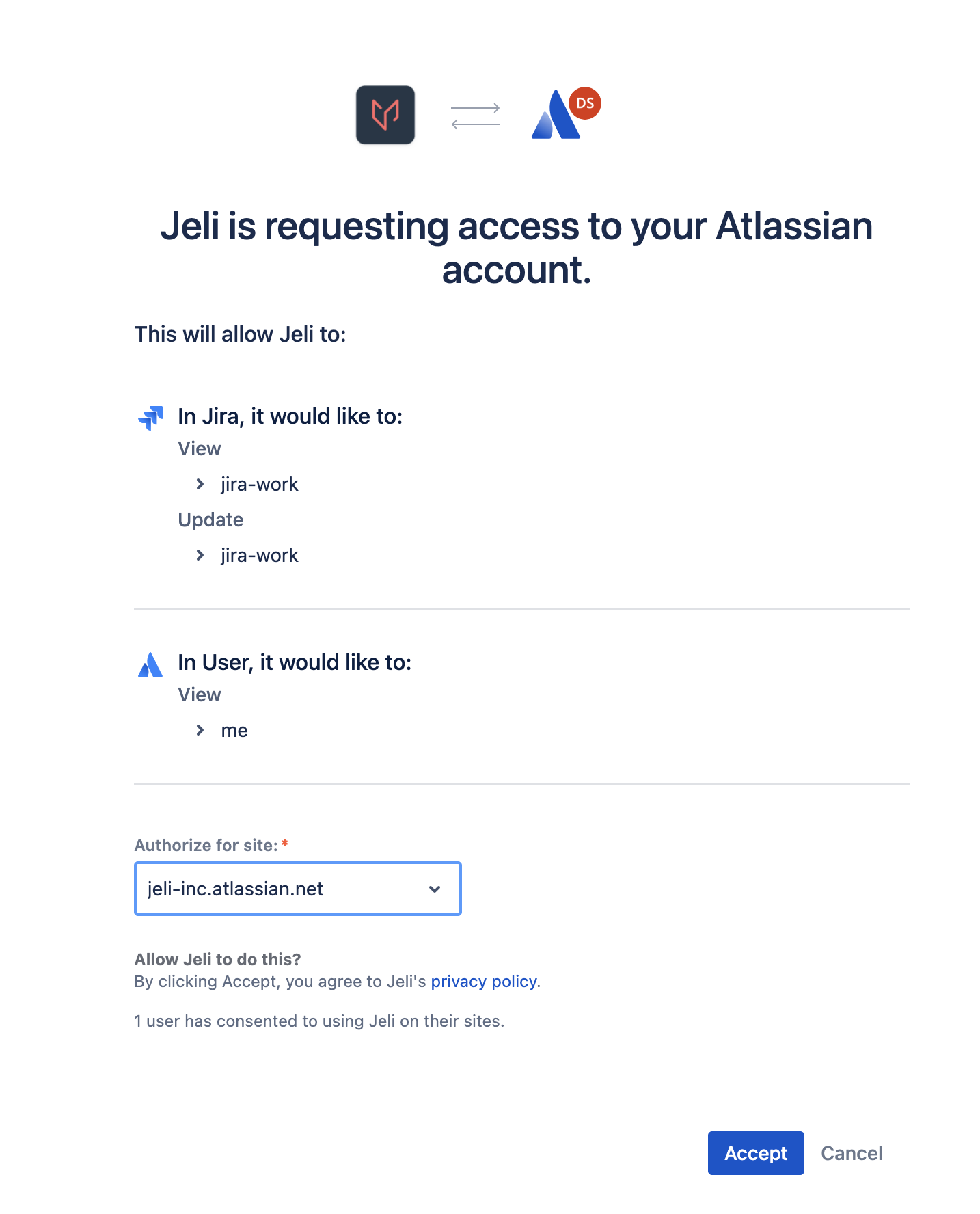Jira Integration | Jeli
Jeli Part of PagerDuty
Jira + Jeli Benefits
- Create new action item tickets in Jira or import existing tickets into an investigation.
- Manage and track tickets in Jira without leaving Jeli.
Requirements
Availability
Jeli is available to customers with a standalone Jeli plan, or if they are on the Enterprise Incident Management or Enterprise Customer Service Ops plans. For customers who have Jeli as part of their pricing plan, all users (regardless of user role) will have access to Jeli. Please contact our Sales Team to upgrade to an account plan with Jeli.
To Configure the Integration
In Jeli
Admin permissions are required to manage your Jeli integrations. To add someone as an admin, visit User Access Management Settings in the Jeli web app.
In Jira
Users will need permission to create API Atlassian tokens.
How it Works
- Users can create or link a Jira issues to Jeli Post-Incident Reviews.
- Linked Jira issues are made available for incident analysis at end of an incident's lifecycle.
Version
This integration is for Jira Cloud products, as well as Jira Server (i.e., Jira Software and Jira Service Management).
Integration Walkthrough
Internal Service Account
We recommend creating an internal service account to configure the Jira integration. If an individual user sets up the Jira integration and then leaves your company, the Jira integration will no longer work. If you’re not sure how to request or set up a service account, reach out to your internal IT team.
Jira Cloud
-
In Jeli, navigate to Settings Integrations Jira.
-
Select the tab Connect to Jira Cloud configuration.
-
There are two methods that you can use to connect your Jira account:
-
Connect with OAuth:
-
Click Connect to Jira, which will take redirect you to Jira.
-
In the Authorize for site dropdown, select which Jira site you are authorizing and click Accept.

Accept access request
-
-
Connect with API Token:
Use Service Account
We suggest using a service account to generate this API token. When creating Jira issues in Jeli, the reporter of the Jira issue will be set to the user/account that generated the API key. See Manage API tokens for your Atlassian account in the Atlassian documentation for more information.
- In Jira, create an API Token and keep it in a safe place for later use.
- In Jeli, navigate to Settings Integrations Jira.
- Enter your configuration details:
- Jira Site Domain: The URL of your organization’s Jira instance, e.g,
https://subdomain.atlassian.net. - Email Address: The email address you use when logging into Jira.
- API Key: Paste the API key generated from Jira.
- Jira Site Domain: The URL of your organization’s Jira instance, e.g,
- Click Connect account.
Once configured, the integrations page will display your active configuration and give you an option to disconnect the integration.
-
Jira Server
- In Jeli, navigate to Settings Integrations Jira.
- Select the tab Connect to Jira Server.
- Select Connect using user credentials.
- Enter your configuration details:
- Jira Site Domain: The URL of your organization’s Jira instance. For example,
https://bean-co.atlassian.net. - Username: The username Jeli will use to connect to Jira.
- Password: The password will use to connect to Jira.
- Jira Site Domain: The URL of your organization’s Jira instance. For example,
- Click Connect account.
Once configured, the integration page will display your active configuration and give you an option to disconnect the integration.
Incident Analysis with Jira
For more information on using our Jira integration for Incident Analysis, please read Collect Action Items.
Uninstall the Jira | Jeli Integration
- In the Jeli web app, navigate to Settings Integrations.
- In the section Jira, click Edit configuration.
- Click Disconnect Jira Site.
- In the confirmation modal, click Disconnect.
Updated 2 months ago
